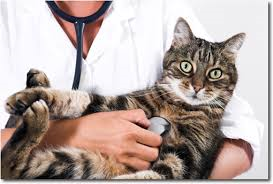
For pets that are in need of specialised medicine treatment, Animal Accident & Emergency offers a Medicine Service at our Point Cook Pet Emergency Centre. Our Medicine Service accepts all forms of Internal Medicine consults and we are more than happy to provide advice on a wide range of medical conditions.
The Medicine Service is essential in the diagnosis, management and nonsurgical treatment of complicated and unusual medical diseases in animals. The types of diseases seen by our Medicine Service are wide and varied, including diseases of different organ systems. For example:
- Kidneys (nephrology)
- Liver (hepatology)
- Lungs (respiratory)
- Blood system (haematology)
- Central nervous system (neurology)
- Immune-system (immunology)
We also see diseases that may affect multiple body systems at the same time, such as infectious diseases or cancer. As part of cancer therapy, we now offer a chemotherapy service. Our Medicine Service is also complimented by our Intensive Care Service for seriously ill patients requiring ongoing 24 hour care.
The benefits of seeing an Internal Medicine Specialist in our Medicine Service is that they can offer diagnostic procedures and management of diseases that are often not available in general practice veterinary clinics, which may be due to limitations of equipment or the complexity of the disease. Like all veterinary specialists, Internal Medicine Specialists undergo advanced training in the form of a Residency program and are required to pass Fellowship exams through the Australian and New Zealand College of Veterinary Scientists (ANZCVS) or the overseas equivalent (USA or European boards). This training means that Internal Medicine Specialists develop advanced technical skills that allow them to perform diagnostics and treatment at a specialist level in their area of expertise.
Diagnostic testing used by our Medicine Service may involve:
- Blood and urine tests
- Collection and analysis of body fluids
- Endoscopy
- Electrocardiography (ECG)
- Fine needle aspirate or biopsy
- Imaging (X-rays and ultrasound)
- Advanced imaging (CT and MRI)
Patients seen by our Medicine Service require a referral from their family veterinarian that they see for routine healthcare. We also require the patient’s medical history to be sent in advance of the consultation where possible. We will continue to update the referring veterinarian with summaries of our consultations and aim to work together with them to provide the most appropriate continuing care for your pet. Ongoing management may require periodic visits to our Medicine Service and/or ongoing communication with your veterinarian. As with any veterinary patient, drugs may only be prescribed for those directly under our care, which means that drugs may only be dispensed by our clinic for up to six months following a consultation with us. It is also important to note that our Medicine Service does not provide primary healthcare (such as vaccinations and desexing) as these types of vet care are performed by your family veterinarian.
Since early 2013, the development and management of the Medicine Service has been headed by Dr Linda Abraham, who is an Internal Medicine Specialist with many years of experience in referral/specialist veterinary practice. Prior to attending university, Dr Linda Abraham worked as a veterinary nurse in a mixed practice. In 1983, Linda passed her preliminary veterinary nursing examination and then her final veterinary nursing examination in 1985, for which she was awarded the BSAVA prize for the highest marks in that year.
Linda then went on to graduate from the Royal Veterinary College, London in 1994 with a Bachelor of Veterinary Medicine (BVetMed). She has also completed a Bachelor of Science (BSc) and a PhD from the University of London in 1991 and 1998 respectively. Following on from this, Linda then underwent specialist training, completing her Membership in Small Animal Medicine (MANZCVS) in 2000, and then completing her Fellowship in Canine Medicine (FANZCVS) in 2006. She has since acted as an examiner for the ANZCVS both at the Membership and Fellowship levels.
Linda’s residency program (specialist training) at the University of Melbourne was supervised by Dr Steven Holloway and after the program was completed, she continued to work at the University of Melbourne as a registrar initially and then became a member of faculty in 2002. Linda has lectured veterinary undergraduates for many years at the university and is currently involved in teaching veterinary post graduate continuing education programs.
Linda’s areas of interest include endocrine disease and, despite having specialised in canine medicine, she has a particular interest in feline endocrine disease, including feline hyperthyroidism. Linda has previously treated many cases of feline hyperthyroidism successfully with radio-iodine therapy (this treatment will soon be available at our Point Cook Clinic). Linda also has an interest in liver disease and the treatment of cancer.
Dr Linda Abraham is available for specialist medicine consultations during weekdays (excluding public holidays). Please contact our Point Cook Pet Emergency Centre on (03) 8368 7400 to book an appointment.
Appointments are by referral from your family veterinarian or AAE’s emergency veterinarians.

www.animalemergency.com.au
-37.873563
144.740393







